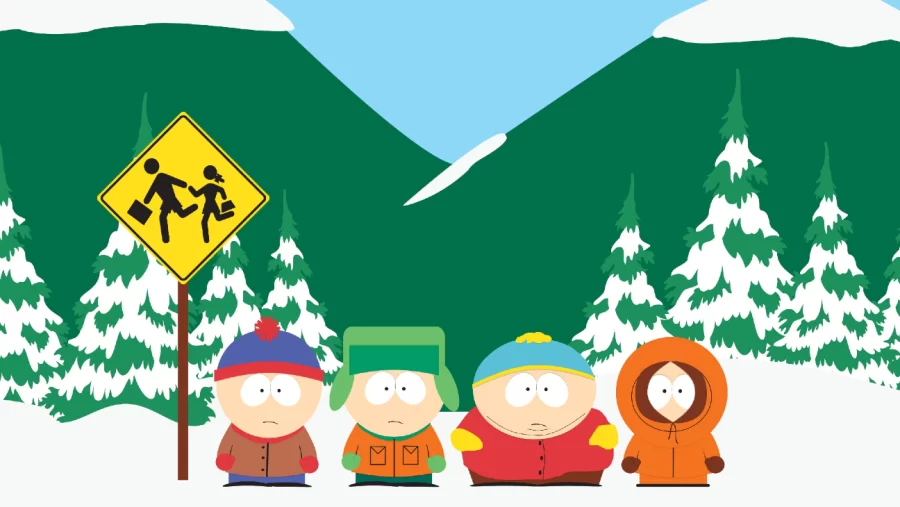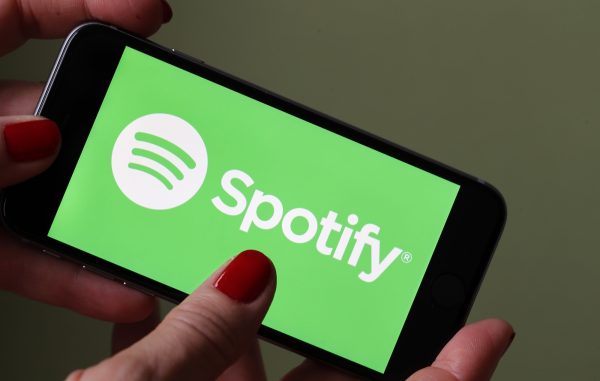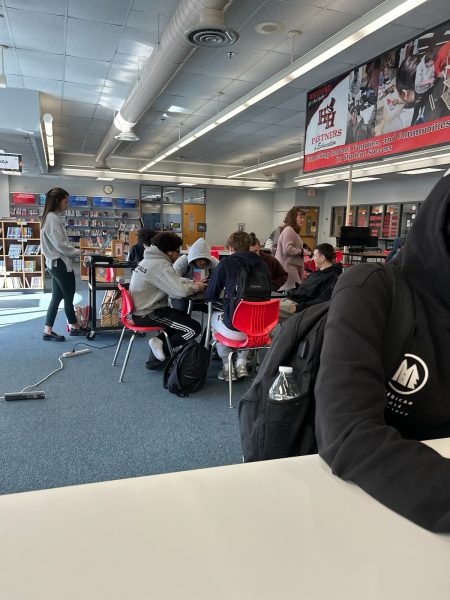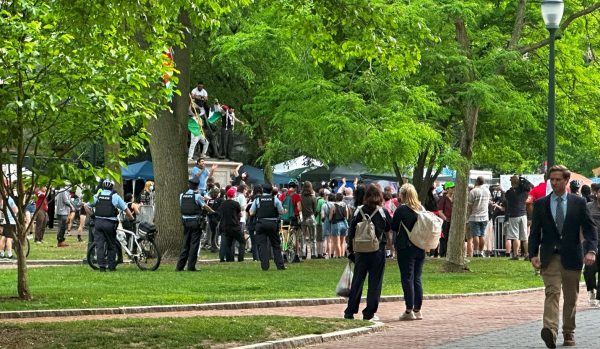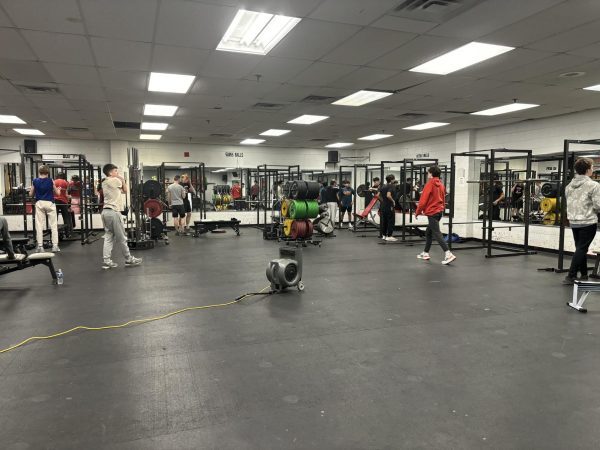Looking at Free Speech
We are lucky enough to live in a country where free speech is federally protected by our constitution. Believe it or not, federal protection of speech is a rare sight, even in Western countries. Take our friend Germany, for example.
According to a New York Times article by Adam Satariano and Chris Scuetze, German police last year came looking for a man for spreading hate speech and misinformation online, saying:
“He had shared an image on Facebook with an inflammatory statement about immigration falsely attributed to a German politician. ‘Just because someone rapes, robs or is a serious criminal is not a reason for deportation,’ the fake remark said.”
The article also mentioned that, “At that exact moment in March, a similar scene was playing out at about 100 other homes across Germany, part of a coordinated nationwide crackdown that continues to this day.”
Not just Germany, but our neighbor and friend Canada has no federal protection against free speech. According to a Reason TV article, a Canadian comedian was fined $42,000 for a distasteful joke.
“The joke concerned Jeremy Gabriel, a 19-year-old Canadian singer who suffers from Treacher Collins Syndrome, a debilitating disease. Ward’s joke was that the constant media coverage of Gabriel overlooks the fact that ‘he was supposed to die… why isn’t he dead yet?’ Ward suggests that Gabriel ‘stole a wish’ and is now, in fact, unkillable.”
The joke, albeit really bad, would be protected here in the USA. The thing is, we might be close to what Canada is going through right now. Is free speech being undervalued today in the USA? How might social media be the catalyst?
Well, time and time again, we see our free speech undervalued. We see this through social media, specifically, TikTok and Twitter.
Much of the censorship comes from talking about China’s domestic problems. Coming from Wikipedia, “On 27 November 2019, TikTok temporarily suspended the account of 17-year-old Afghan-American user Feroza Aziz after she posted a video (disguised as a makeup tutorial) which drew attention to the aforementioned Xinjiang internment camps.”
Not only that, but TikTok staff got into the politics of the USA, banning anyone talking about Trump, even if it was just news coverage, for inciting violence back in January 2021, according to Fortune magazine.
Something that confuses though is that certain things on the platform that could be deemed offensive and inciting violence are perfectly fine on the app. This, I am referring to, is South Park clips. They usually consist of a clip of South Park or Family Guy in the top part of the screen, mobile gameplay at the bottom, and Chinese subtitles for the clip (for some reason).
These shows have very insensitive jokes, and considering the type of speech censorship that has been occurring now for these types of jokes, it begs the question: Why does this show get to say the things that they say, and other things on TikTok don’t?
An example of one of these jokes was when a starving Ethiopian showed up to the door of the main characters, and in multiple instances they’d keep food from him. They called him “Starvin’ Marvin.”
In any other situation, this would be censored on TikTok because it’s hateful, but it isn’t here. Why is that? Is this a fight for free speech on a suppressive platform?
Well, I asked some people in the school this same question among others. They were: Do you think speech should ever be censored? Have you ever been censored, specifically on social media?, and Why do you think borderline unethical shows have gotten such a following, especially now-a-days?
I first interviewed sophomore Miller Kahmar, and he said in regards to the first question, “Sometimes, I feel like it is very specific to what you say, and it’s just better off not saying, and I usually keep my social media pretty clean so I have never been censored before.”
In regards to the following questions, he said, “I don’t really know why South Park can get away with some of the things they say, if I had to guess it be because the show is directed more to an uncaring audience.”
I also asked him why that show has gotten so popular recently, and he said that it was because the type of platform it’s being pushed onto has a less sensitive audience, and like he said before, it caters to them.
Miller has some fair points; we were taught growing up that if you had nothing good to say, you shouldn’t say it at all. The only thing is that “good” is subjective. Other interviews had different opinions.
Another person I interviewed was freshmen Freddy Simko. I asked him the same questions, and he said similar things.
“I think it is acceptable in some cases, if you’re in a serious environment, you should be censored because you don’t want to be rude or impolite, but in an unserious setting, no it shouldn’t matter what you say.”
He also said that he was never censored by any media company himself. When asked the question of why South Park can get away with things and why it has become more popular, he said,
“I feel they can get away with the things they say because it’s put into a more cartoonish and childlike situation. When a cartoon says something opposed to real life, it softens the punch. People find that satire funnier.”
Someone who I thought would have some important info was my sister Amanda Salvatore. I asked her since she always has valuable input on these types of matters.
She said, “I do think it’s okay to censor free speech but only in extreme situations. For example, words or acts of obscene violence with intent to do serious harm can be appropriately censored. I haven’t had that happen to me, though.”
She also said that, “I believe they can get away with stuff like that because it’s under the guise of humor. The audience understands that the content is meant to be humorous and entertaining so no one takes it seriously.”
“I also think people enjoy being shocked and experiencing the unexpected. There’s definitely a group of people who can relate to the outrageousness in the show and feel like they can’t express their thoughts out loud though.”
There were times when the show’s creators crossed the line. In the Episode “201,” they portrayed the prophet Muhammad. It was censored by Comedy Central, and Trey Parker mentions that “In the 14 years we’ve been doing ‘South Park’ we have never done a show that we couldn’t stand behind,” showing that they wanted to push this episode and didn’t care if it crossed boundaries.
It may not be the satire that keeps them safe, but the audience. The audience seems to like the offensiveness of the cartoon, as seen in an upset audience when hearing about the censorship within “201.”
What Amanda said though directly represents what a lot of people think about the show. The Hat Chat sent a poll out on the topics being discussed, and one anonymous person said “I like South Park, I think it’s funny. I know the jokes aren’t nice but they are jokes. Like if they make fun of a kid that was like me I wouldn’t take it personally. I’m not offended when they say r***rd and such.”
In terms of TikTok itself, many want it to stick around, despite its censorship and non-domestic ownership. 76% of people who answered the poll didn’t support a ban on the app, and half of the collected answers said in certain cases the platform can censor its users.
One person said, “I think the company should have the responsibility of deciding what’s allowed and what isn’t, or the users should be in charge, as there have been times where Tik Tok has acted as a platform to raise awareness about ongoing issues within the world.”
Most who wanted censorship on the platform either trusted the government in the responsibility or the company itself, which is where the problem lies. The government can’t censor speech in any kind, and the company itself has proven to be untrustworthy with examples like Chinese political matters and Trump banning.
According to F.I.R.E, a free speech advocacy organization, “freedom of speech, freedom of association, due process, legal equality, religious liberty, and sanctity of conscience [are] the most essential qualities of liberty.”
The American Civil Liberties Union (ACLU) also says something similar: “legislators routinely attempt to place new restrictions on online activity, and journalism is criminalized in the name of national security. The ACLU is always on guard to ensure that the First Amendment’s protections remain robust”.
The thing is, we as a nation and even we as a school have a lot of contradicting thoughts on what instances of free speech are allowed and which instances aren’t. We really need to figure it out soon, because if there is no clear say on what is allowed, how do we ever know what isn’t allowed?

Favorite school subject: AP Gov
Hobby: Guitar, gym
What you enjoy/look forward to with The Hat Chat: I look forward to editing articles and helping...

